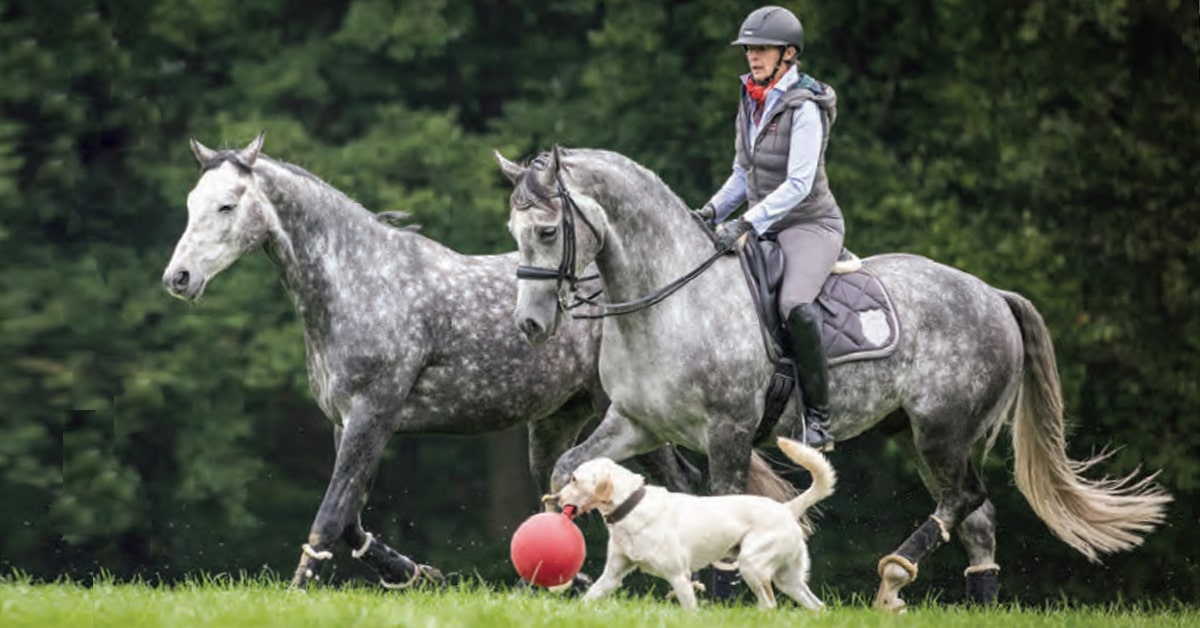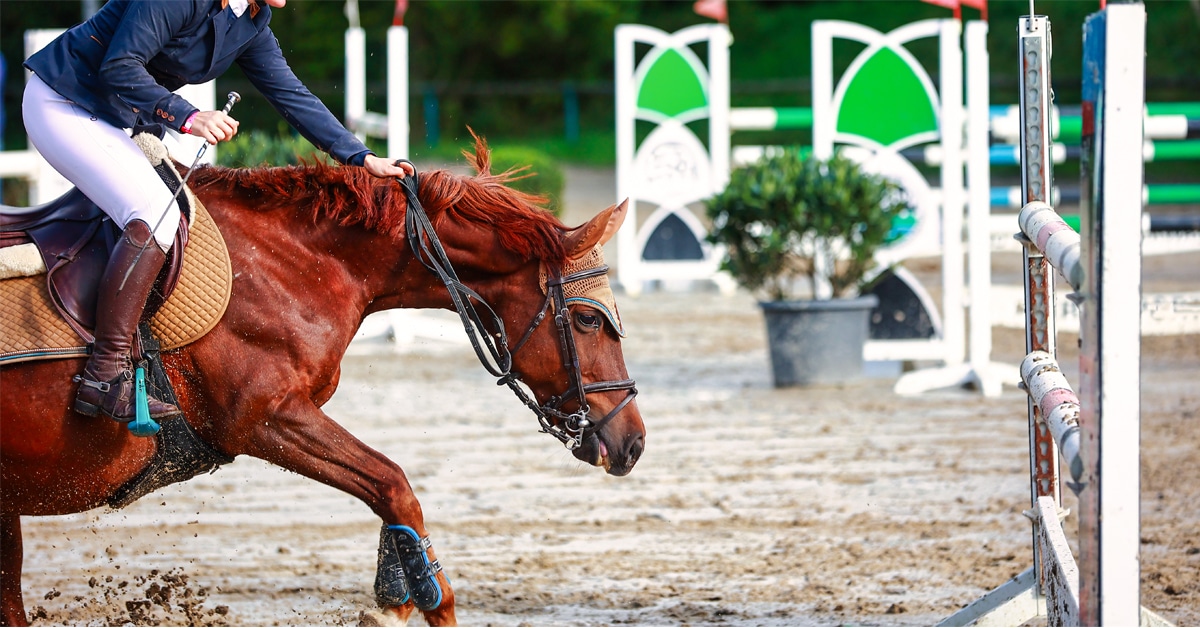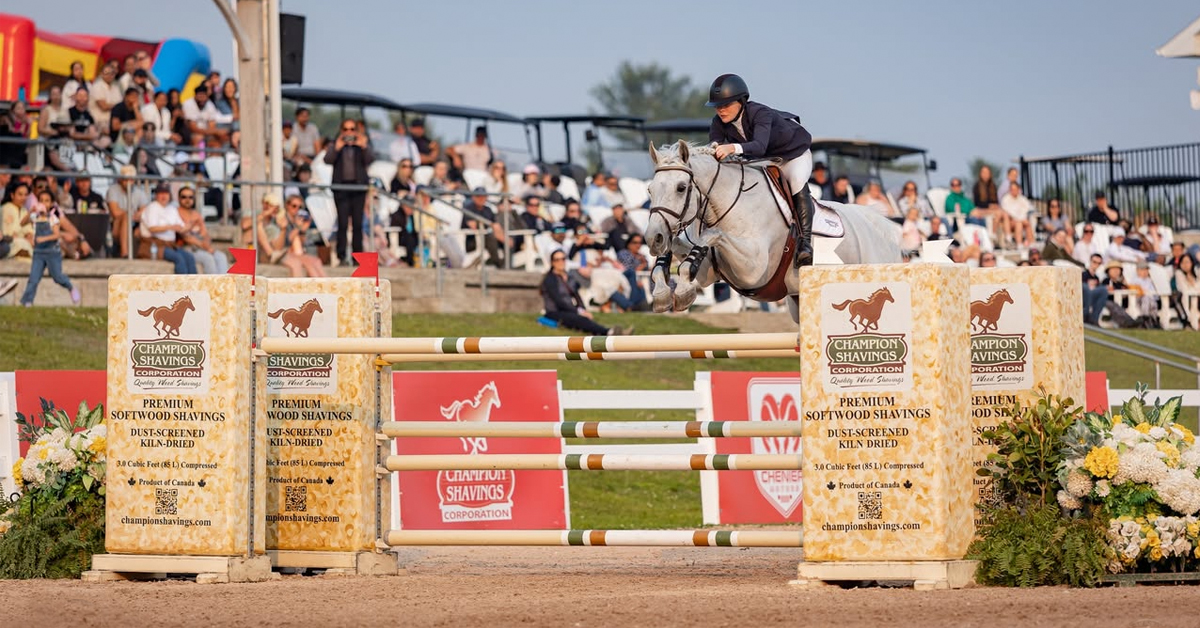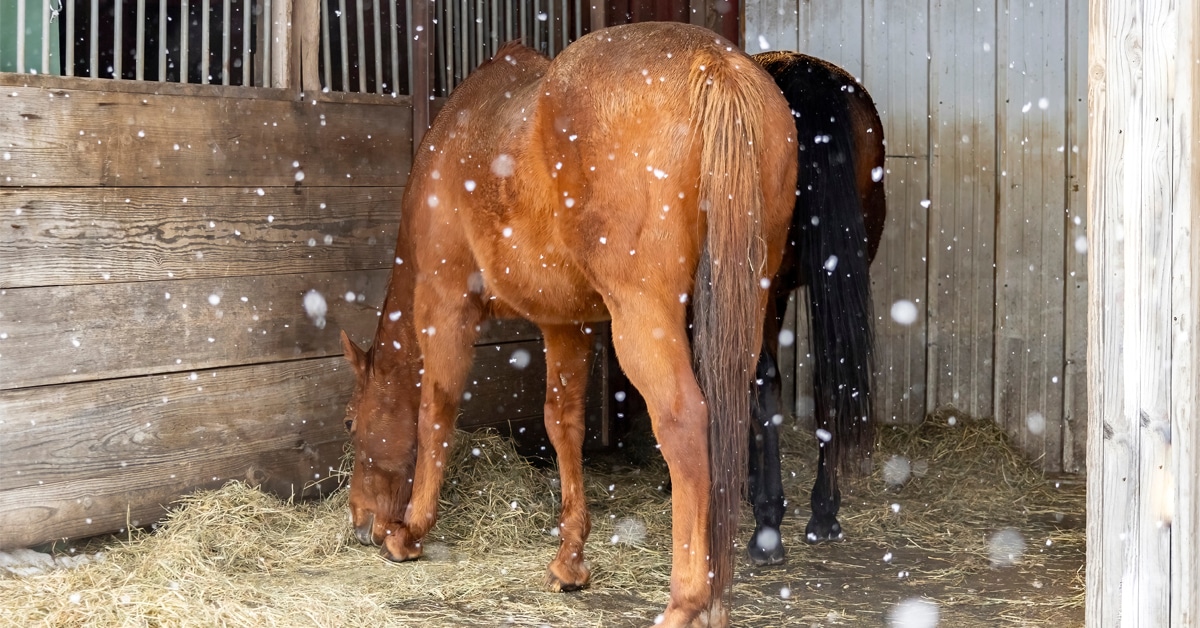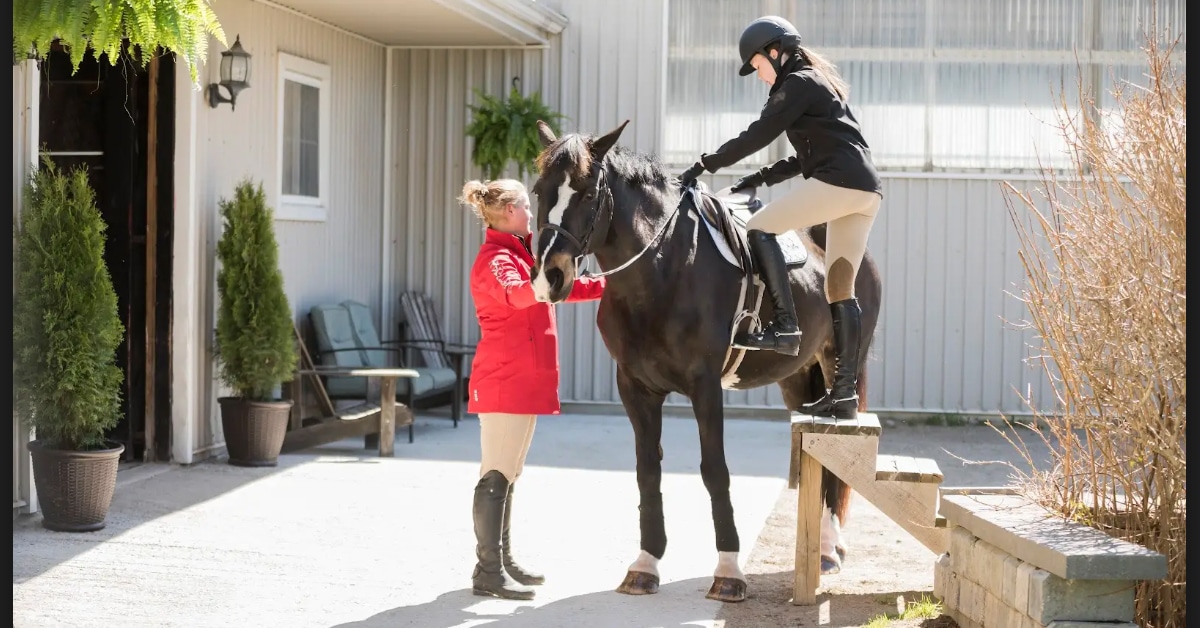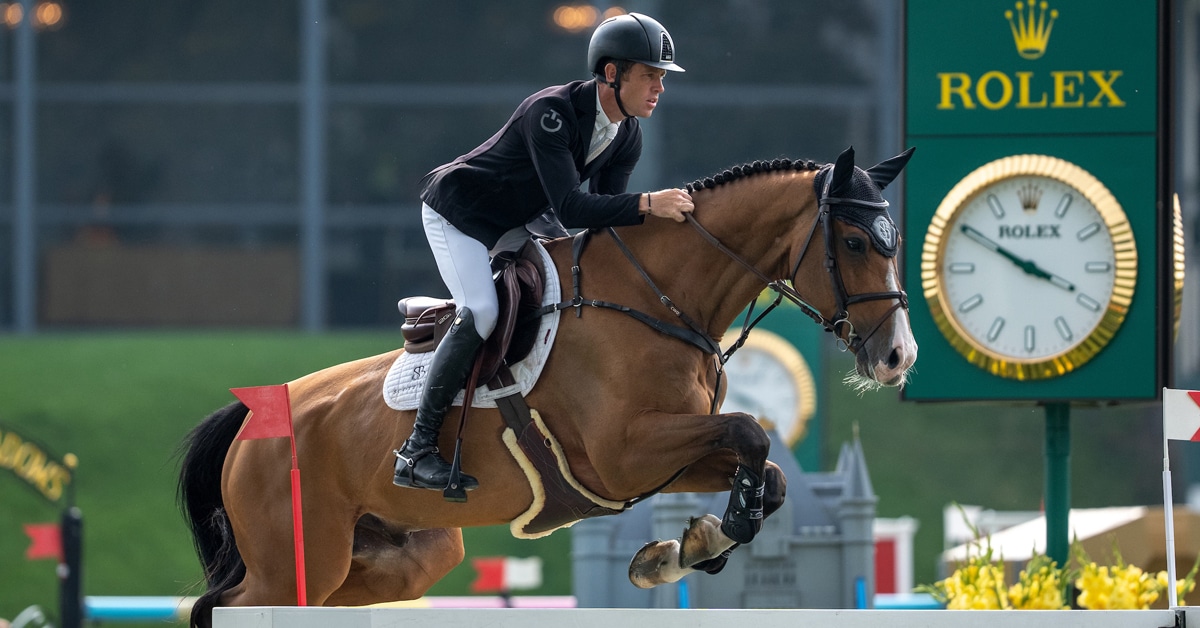Under what circumstances would a Jumper Warning Card be issued?
The Warning Card is only given for offences in the schooling or warm-up ring. The types of things flagged by officials might be jumping an illegal fence, rapping a horse, or any abuse including, but not restricted to, excessive use of spurs, whip abuse, or brutal and inappropriate use of reins. The warning card is specific to violation of Schooling Rules. These cards can be given by the steward or a member of the ground jury.
The Yellow Card is given for rule violations deemed minor in nature that may occur anyplace on the competition grounds, such as not leaving the field of play without delay after elimination, or an individual not following the directives of the organizing committee or competition officials. Also, inappropriate behaviour towards other competitors or fans (or even moms and dads) could initiate the issuing of a Yellow Card. This card may be issued by a steward, a judge, or a technical delegate.
What is the procedure if someone questions the height of a pony?
The height of a pony six years or older may be questioned by any owner, lessee, trainer, coach, rider, or driver competing against them in the same class. The protest must be in writing, addressed to the secretary of the organizing committee at the competition in question, and accompanied by a $100 cash deposit (which is returned if the protest is upheld).
The pony is re-measured with two officials present – veterinarian, steward, judge, or any combination of these. A form is filled out by the measuring officials and is signed and placed in the passport. This form also is sent to Equine Canada.
What are the most rewarding/toughest aspects of being a steward?
Rewards tend to be abstract. If my intervention prevents a situation from escalating, I feel rewarded. If I am able to explain a rule to a pony rider that makes things clear to the rider, that’s a reward. If, after disciplining a rider and getting pushback, they later apologize and acknowledge their error, that’s a huge reward. But the biggest reward is being part of a team mandated to possess a voice concerning the welfare of the horse.
All incidents of discipline are tough. We don’t like giving Yellow Cards or imposing sanctions. For me, the toughest is eliminating or disqualifying a competitor for small, unattended details such as ineligible entries, or taking a ribbon away from a young competitor when an error is discovered.
As you can imagine, the weather plays into both the rewarding and the tough parts of stewarding. When the weather is fine, everything is easier. When we are dealing with wet, cold, mud, and wind, we have to stay just as committed!
At one time, the toughest part of the steward’s function was the lack of respect or acknowledgement of the validity of their position. Fortunately, this is changing. Most organizers today find that stewards are not simply a financial burden, but help their competitions by protecting the welfare of the horse and creating a level playing field among competitors.
Truthfully, stewarding lands clearly on the rewarding side. I urge anyone interested to look up the criteria in our rule books, either in general regulations or Book G – Hunter/Jumper.
I notice EC offers a Rule Change Suggestion Form. Can anybody fill that out, or just stewards?
It is the right of every member of Equine Canada to propose amendments to the rules, subject to current policies, procedures, and schedules. The full schedule of deadlines is outlined on the Equine Canada website under Rules/Rule Change Proposals
The Latest
